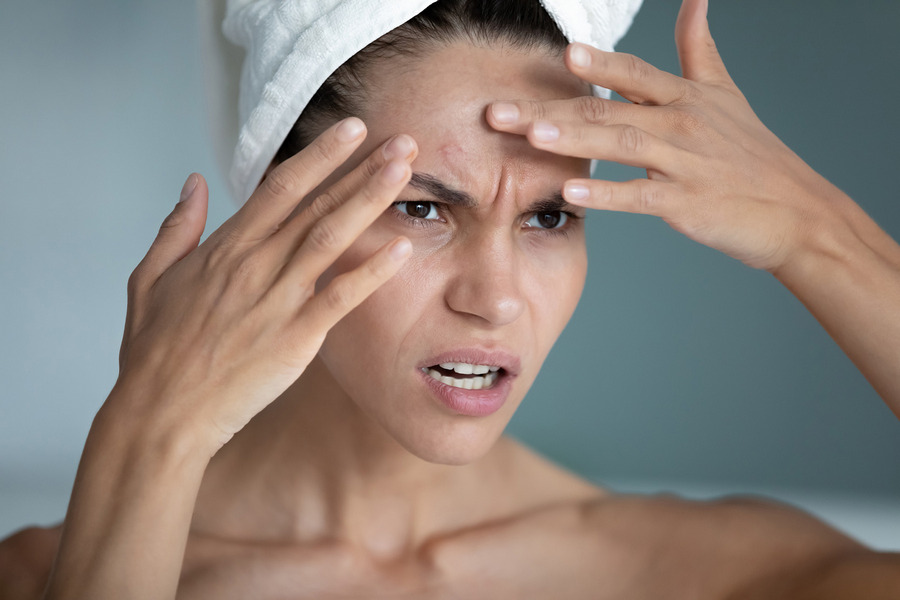Impact of Stress on Skin

In today’s fast-paced world, stress has become an unavoidable part of our lives. We often hear about its detrimental effects on our mental and physical well-being, but have you ever considered the impact of stress on your skin? The connection between stress and skin health is a fascinating and complex one. Go through the article and check the unique ways in which stress affects your skin.
Breakouts and Acne
Stress has been linked to an increased risk of breakouts and acne. When you’re stressed, your body produces more cortisol, a hormone that triggers the production of sebum, the oily substance that can clog pores and lead to acne. Additionally, stress can disrupt the balance of beneficial bacteria on your skin, contributing to inflammation and further exacerbating breakouts.
Premature Aging
Prolonged stress can accelerate aging and result in early wrinkles, fine lines, and dullness. The increased production of cortisol caused by stress breaks down collagen and elastin, which are vital proteins responsible for maintaining the skin’s firmness and elasticity. Over time, this can result in the appearance of sagging skin and wrinkles, necessitating a skin resurfacing treatment.
Skin Sensitivity and Irritation
Stress compromises the skin’s natural barrier function, making it more susceptible to irritants and allergens. This can trigger or worsen skin conditions such as eczema, psoriasis, and rosacea. Stress-induced inflammation can also cause itching, redness, and general discomfort, further exacerbating existing skin issues.
Impaired Healing
Stress can impede the skin’s ability to heal itself effectively. It disrupts the normal cell renewal process, slowing down the healing of wounds, blemishes, and scars. Chronic stress can prolong the recovery time of skin ailments and make them more resistant to treatment.
Skin Dehydration
Under stress, the body’s water balance can be affected, leading to dehydration. When the skin lacks sufficient hydration, it becomes dry, rough, and prone to flaking. Dehydrated skin not only feels uncomfortable but also appears dull and lacks the natural radiance associated with healthy skin.
Hair and Nail Problems
Stress doesn’t only impact the skin on your face but can also affect your scalp, hair, and nails. Stress-induced hormonal imbalances can lead to excessive hair shedding, thinning, and even hair loss conditions like telogen effluvium. Nails may become brittle, weak, or develop ridges due to decreased nutrient absorption caused by stress.
Conclusion
The effect of stress on the skin goes beyond what meets the eye. Therefore, if you observe any of the above problems then it is time to see a dermatologist who can provide you with the best skin care treatment. Moreover, you can minimize the negative effect of stress on your skin through relaxation techniques, exercise, a healthy diet, and adequate sleep, which promotes a healthier and more radiant complexion.

